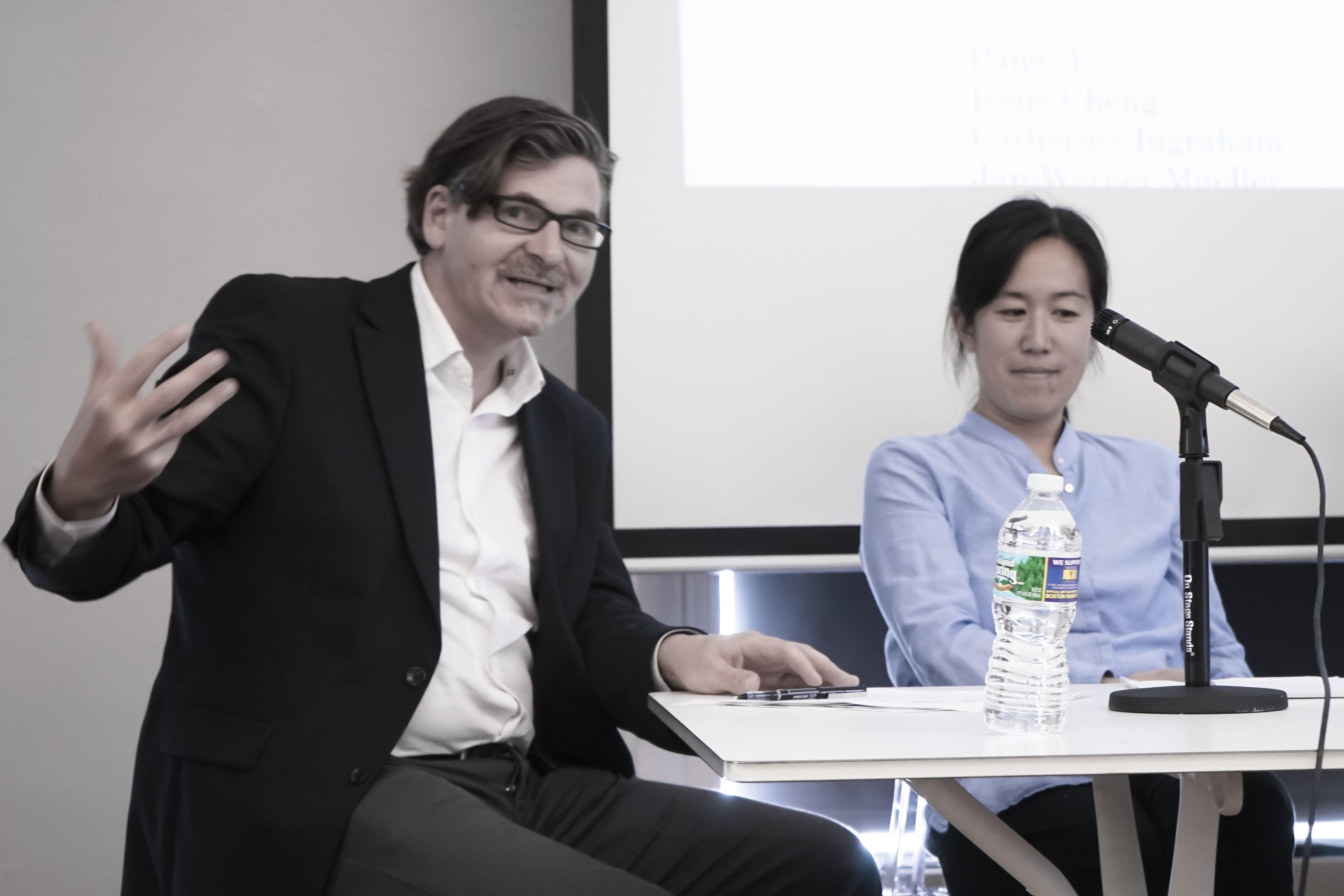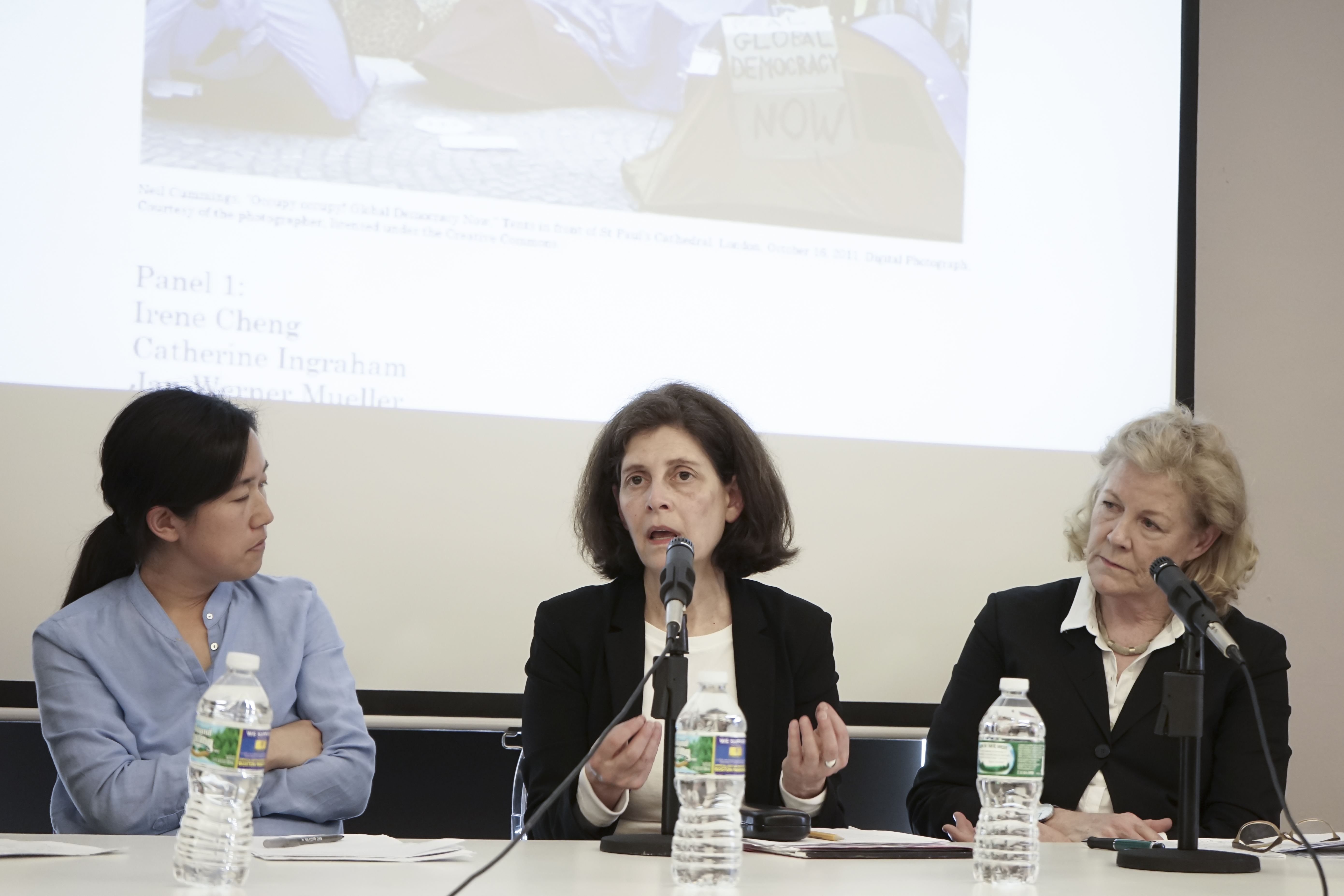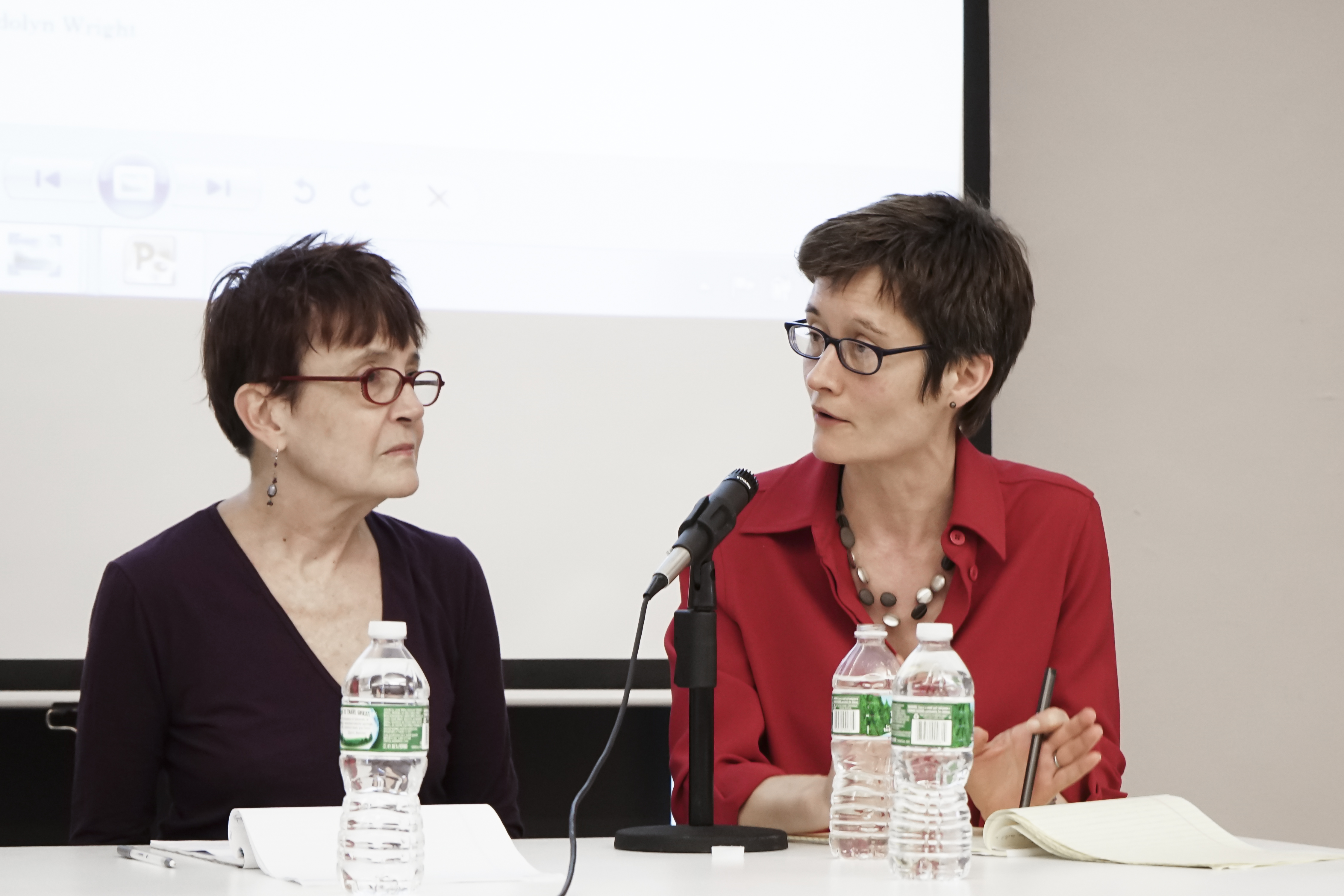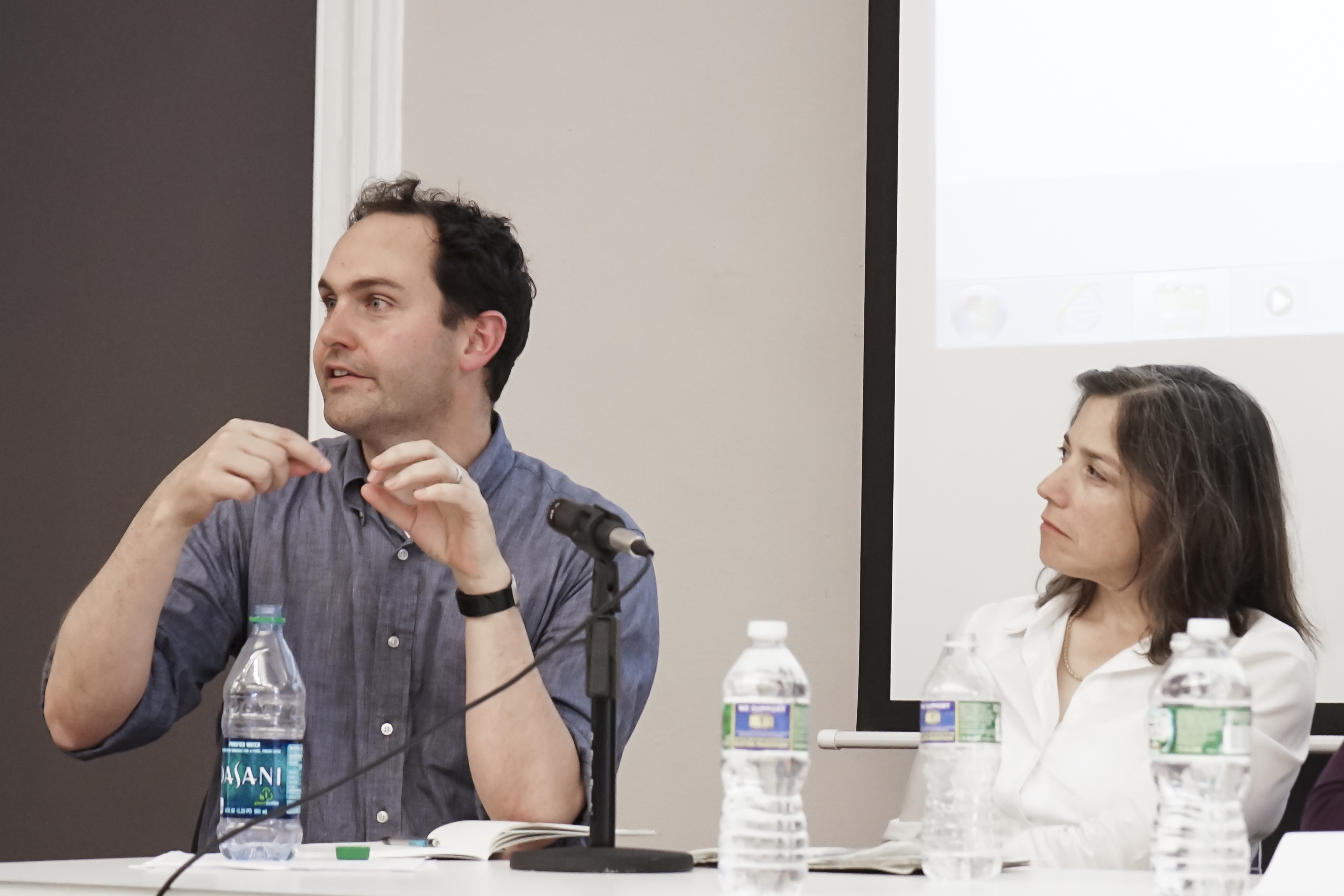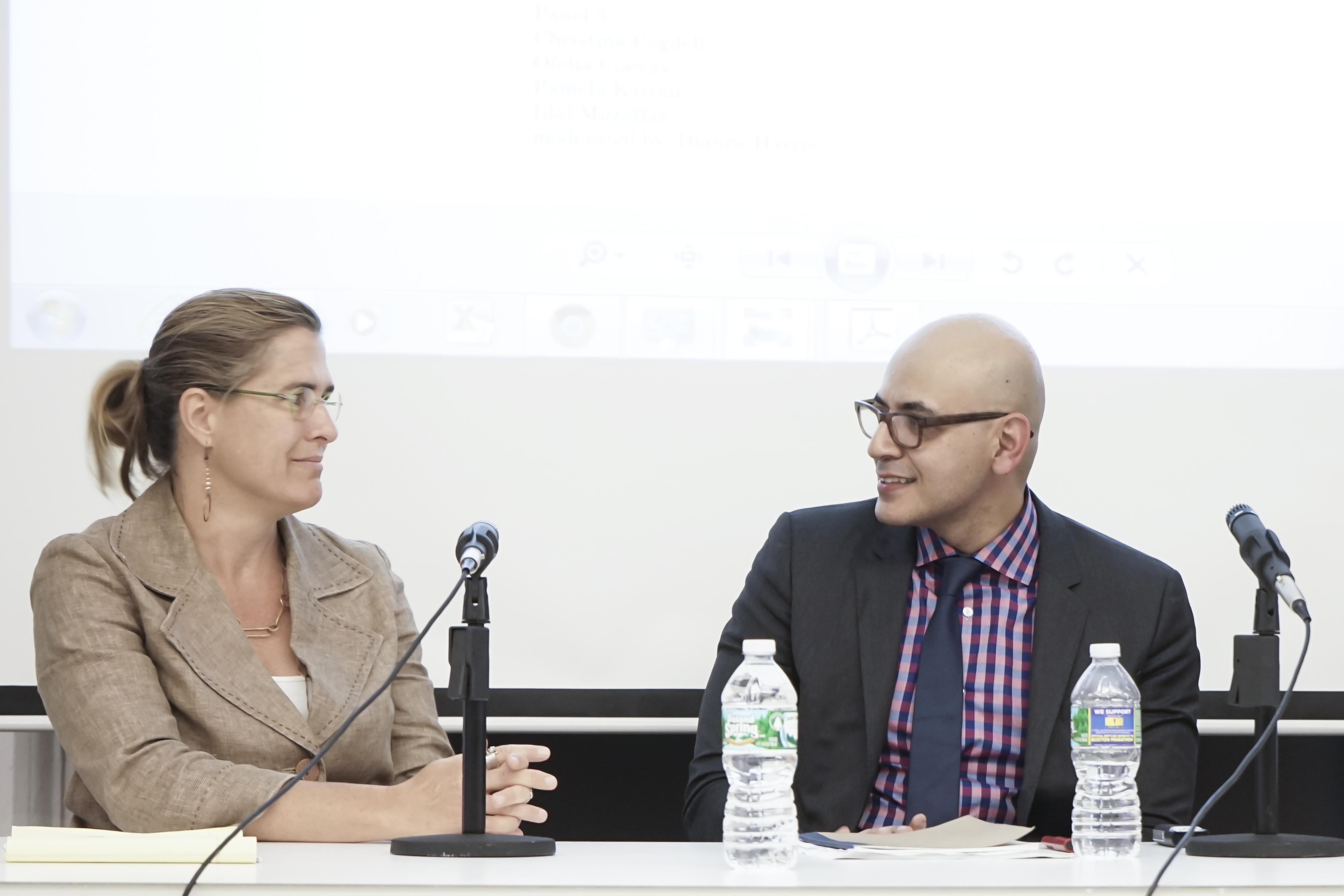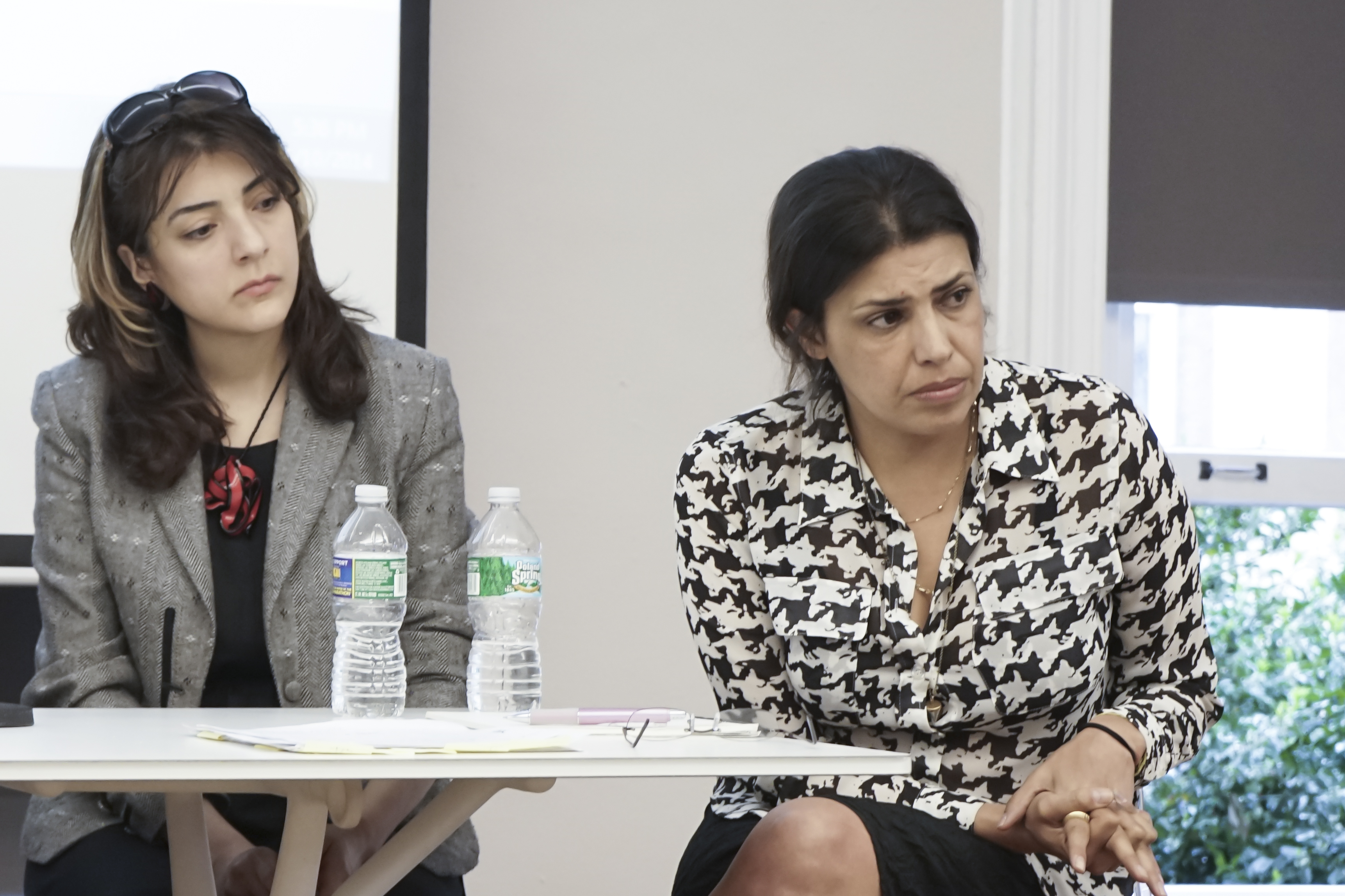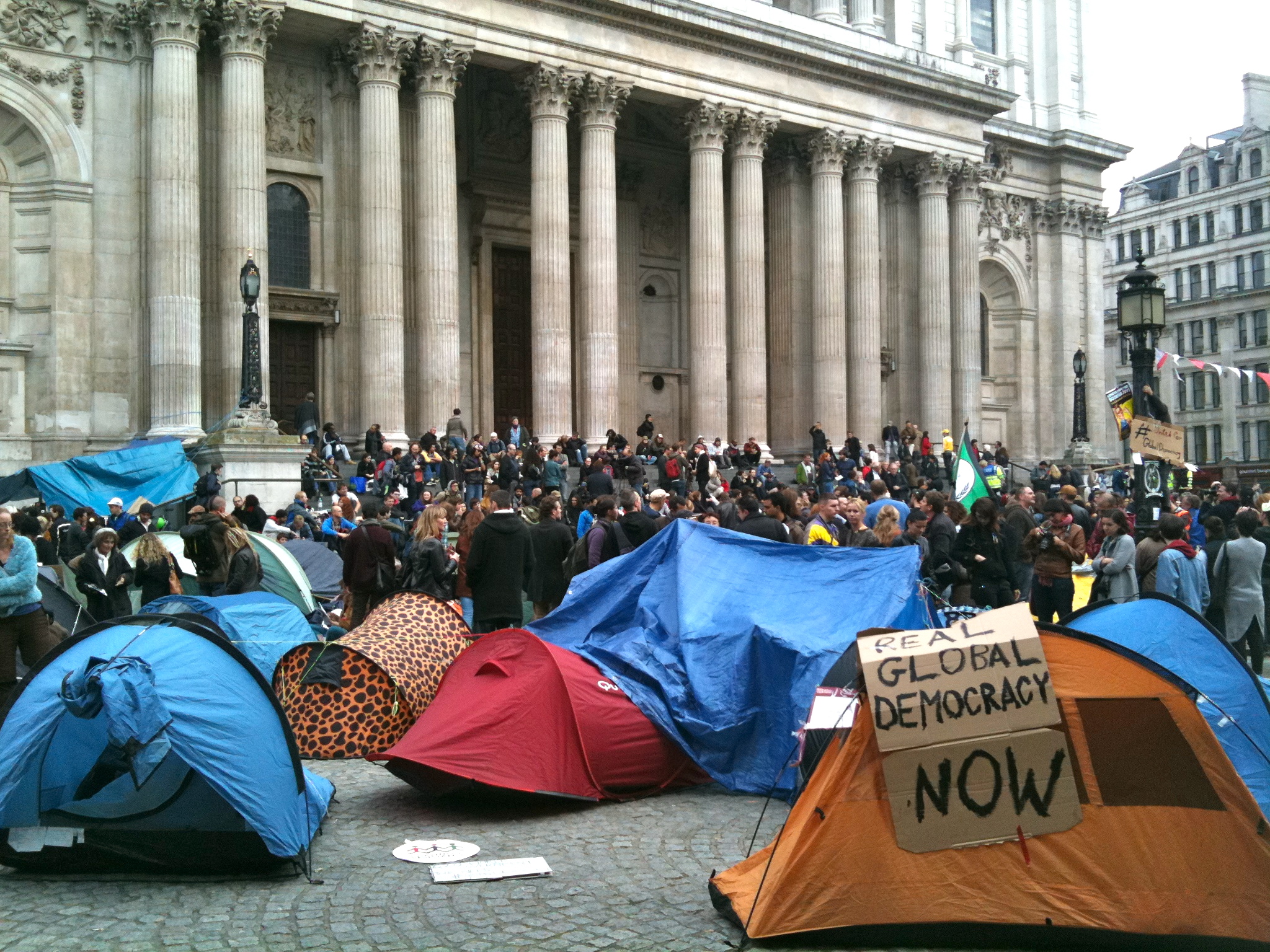
May 9-10, 2014
Museum of Modern Art (MoMA) and East Gallery, Buell Hall
There may be no figure more fraught than that of "democracy." We say figure rather than a political project, system, or ideology, to underscore the role of the imagination, and of cultural narratives, artistic forms, and material things, in shaping and making politics. Historically and in the present, architecture has contributed its fair share to such processes, poised awkwardly between justice and injustice, equity and inequity. Houses, housing, and cities are among architecture's most potent instruments, guiding the political imagination as well as implementing public policies, to yield thoroughly concrete and enduring results.
The conference, hosted by the Temple Hoyne Buell Center for the Study of American Architecture, began with a keynote evening lecture on Friday, May 9th, by Ira Katznelson, Columbia’s Ruggles Professor of Political Science and History and author of Fear Itself: The New Deal and the Origins of Our Time (Liveright, 2013), at the Museum of Modern Art (MoMA), and continued throughout the day on Saturday, May 10th, in the East Gallery of Columbia University’s Buell Hall. The conference’s central reference was the architecture and urbanism of the United States during the modern period, seen comparatively and in the widest possible scope. Rather than de Tocqueville, the conference's ambiguous standard-bearer–poised symbolically in the background–was the architect Frank Lloyd Wright. Wright imagined his work as the quintessential “architecture of democracy,” associated with a politics harking back to Jefferson, and an urbanism in which the epic tension between individual and collective life is arguably at its highest pitch.
The conference coincided with an exhibition at MoMA, Frank Lloyd Wright and the City: Density vs. Dispersal, which marked the museum’s joint acquisition, with Columbia University’s Avery Library, of the Frank Lloyd Wright Foundation Archive. It also inaugurated the Buell Center’s engagement with that archive, by drawing one of many possible frames around it. Conference participants were not asked to address Wright’s work or environs directly; rather, that participants only place these in the frame. In such spirit, the conference brought together scholars in architectural and urban history, American studies, political and economic history, political theory, and urban anthropology to reflect on that frame. In doing so, the conference sought to gather ideas and objects, from New Deal housing policies to the prison system, in which the figure of democracy is most visibly at stake.
Friday, May 9
Bartos Theater (Theater 3)
MoMA, Education and Research Building
4 West 54th Street
6:30 Opening & Keynote
Ira Katznelson, Ruggles Professor of Political Science and History, Columbia University, “What is a Decent City? Reflections on the Architecture of Fear”
Saturday, May 10th
Buell Hall, East Gallery
Columbia University, Morningside Campus
10:00 Conference Welcome
Reinhold Martin, Director, Buell Center
10:10
Irene Cheng, California College of the Arts, "The Specter of Democracy: Figuring the Nineteenth-Century Anarchist City"
10:35
Catherine Ingraham, Pratt Institute, "....in the vernacular of property"
11:00
Jan-Werner Mueller, Princeton University, “Four Ways of Thinking About Architecture and Democracy”
11:25
Joan Ockman, University of Pennsylvania, "Democracy, Plutocracy, Bureaucracy: Frank Lloyd Wright's Critique of American Society"
11:50 Panel 1
Moderator: Bob Beauregard, Columbia University
12:30 Lunch
1:30
Gabrielle Esperdy, New Jersey Institute of Technology, "Democracy through the Windshield"
1:55
Sarah Whiting, Rice University, "Figures of Democracy”
2:20
Samuel Zipp, Brown University, "The Cold War Shape of Shelter"
2:45 Panel 2
Moderator: Gwendolyn Wright, Columbia University
3:15 Coffee
3:30
Christina Cogdell, University of California, Davis, "If Democracy Is Not Inclusive, What Is Democratic Architecture?"
3:55
Ofelia Cuevas, University of California, Los Angeles,"Housing, Race, and Imprisonment: Unprojected Futures in American Democracy"
4:20
Pamela Karimi, University of Massachusetts, Dartmouth, "Domesticity, Dominance, and the Art of Defiance in Iran"
4:45
Ijlal Muzaffar, Rhode Island School of Design, “Evacuated Bodies: Imagining Architecture and Democracy After Race”
5:10 Panel 3
Moderator: Dianne Harris, University of Illinois at Urbana-Champaign
Keynote and opening night are co-sponsored by the Museum of Modern Art’s Department of Architecture and Design and the Social Science Research Council.
Above Image: Neil Cummings, “Occupy occupy! Global Democracy Now,” Tents in front of St Paul’s Cathedral, London, October 16, 2011. Digital Photograph. Courtesy of the photographer, licensed under the Creative Commons.


